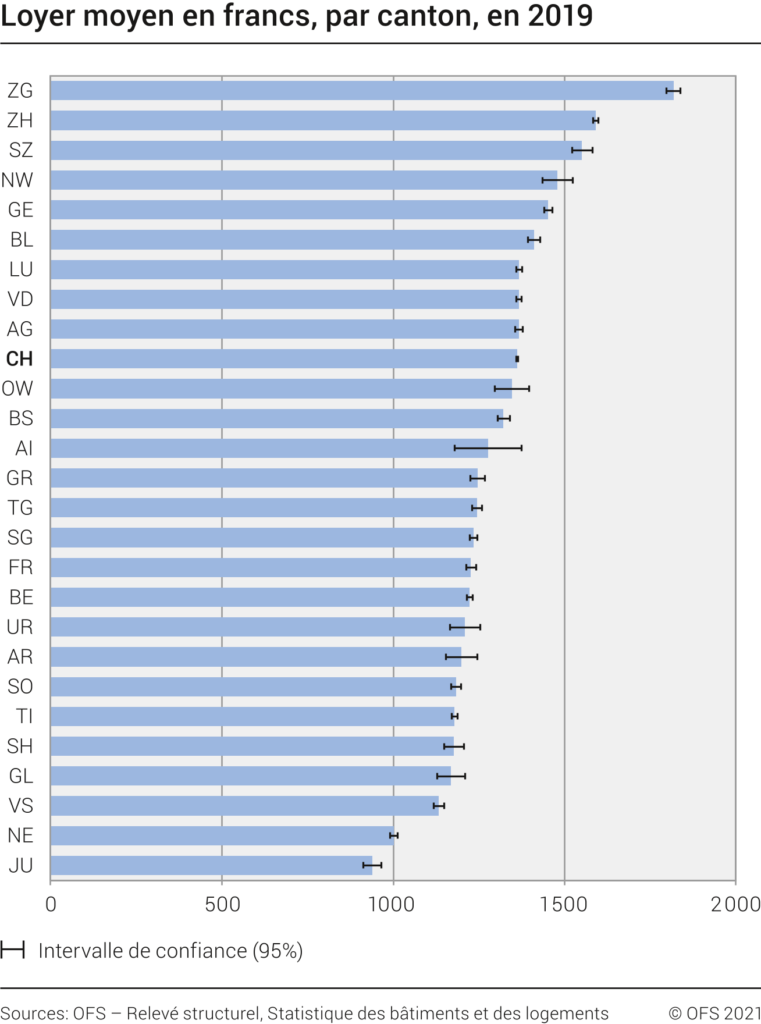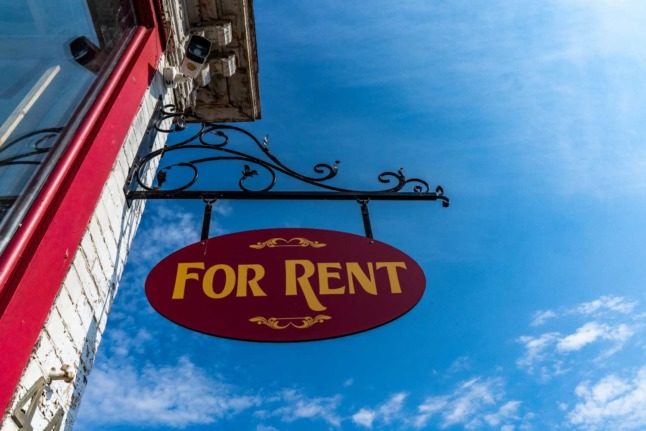Rented accommodations are most expensive in the Swiss canton of Zug, according to a study by the Federal Statistical Office (FSO).
Average monthly rents for a three-to-four room property in the tiny canton, which is home to dozens of multinational companies, is 1,883 francs.
Due to its low tax rate, Zug is a major target for millionaires – with the most per capita in Switzerland.
READ MORE: Which Swiss canton has the most millionaires?
Average monthly rents for a three to four room property in the two cantons ranged between 1,486 and 1,508 francs in 2019.
In the second place is the canton of Zurich (1,663 francs per month), followed by Schwyz (1,612 francs) and Nidwalden (1,553 francs).
Geneva and Vaud are next on the list, with average monthly rents of 1,508 francs and 1,486 francs, respectively.
Where can I find a cheap rental deal?
In contrast, the same size apartment in Jura costs 967 francs — the lowest rate in Switzerland — and 1,000 in Neuchâtel.
The Swiss average for a three to four-room dwelling is 1,362 francs, the OFS reported.
READ MORE: Reader question: How do I challenge my rent in Switzerland?
This chart shows how your canton rates in terms of rents.

For most tenants in Switzerland — 62 percent — the monthly rent ranged between 1,000 and 1,999 francs, while a quarter of households paid a monthly rent of less than 1,000 francs.
Switzerland had 2.3 million tenants in 2019, while 1.4 million people owned their homes.
An earlier study showed that residential property prices continue to climb in Switzerland despite the pandemic, having increased by 2.5 percent in 2020.
Both owned and rented housing is most expensive in the Lake Geneva region, which encompasses cantons of Geneva and Vaud.



 Please whitelist us to continue reading.
Please whitelist us to continue reading.
Member comments